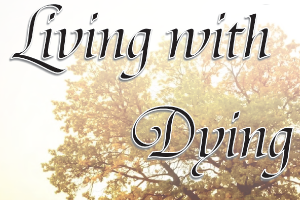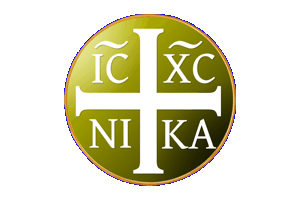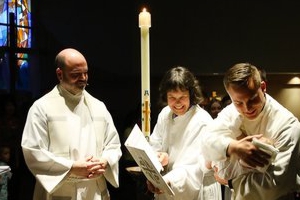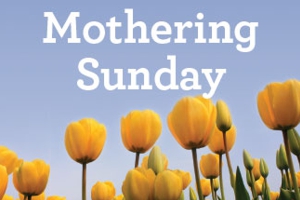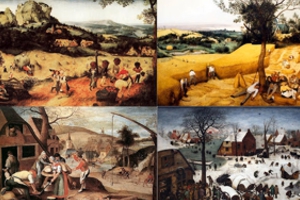
When we think of supporting someone, we often associate it with them being in a weakened state or in a time of need. In marriage, that can certainly be the case. Other times, supporting your spouse can take a much more subtle form. Read on here ...

When we think of supporting someone, we often associate it with them being in a weakened state or in a time of need. In marriage, that can certainly be the case. Other times, supporting your spouse can take a much more subtle form. Read on here ...
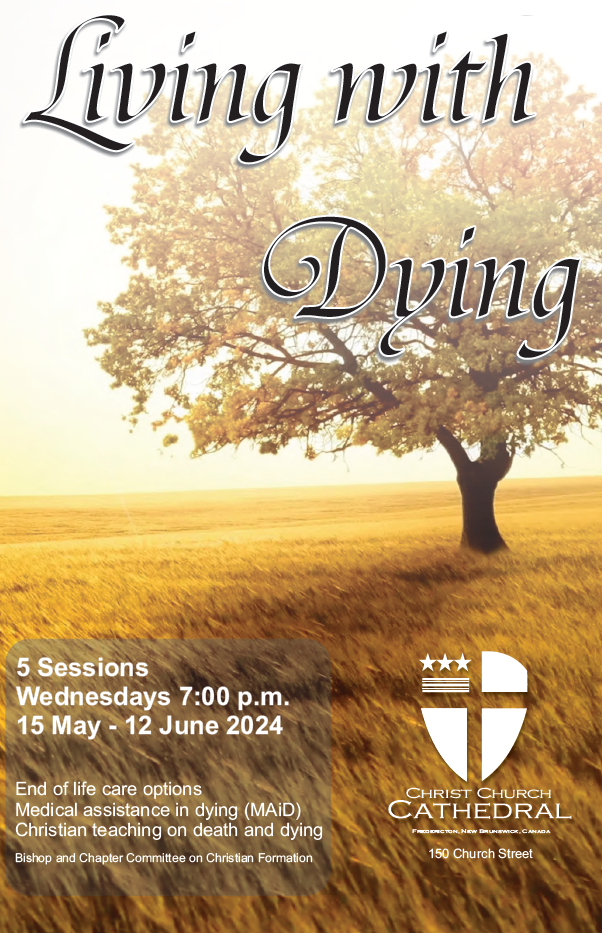
The series will consider many of the important topics related to death and the dying process. Topics will include: End of life care options (with presentations from Palliative Care and Hospice professionals); Medical assistance in dying (with a lawyer sharing legal dimensions and interpretations of MAiD legislation); and Christian teaching on death and dying.
All sessions will run from 7:00 p.m. until approximately 8:30 p.m.
15 May: Introductory Session ~ An informal conversation facilitated by Dean Geoffrey Hall, introducing some of the big ideas and considerations around end-of-life issues. We'll look forward in this session also to hearing from audience members about the most pressing concerns & questions on their minds regarding living and dying well.
22 May: Palliative Care Session ~ Palliative Care is a way to care for patients with life-threatening illnesses, with a focus on quality-of-life – including the physical, social, emotional, and spiritual needs of patients and their families. We look forward to having the chance in this session to meet and chat with some members of the local (hospital-based) and extramural palliative care teams.
29 May: Hospice Care Session ~ Hospice Fredericton provides excellence in end-of-life care and bereavement support to palliative patients and their families. Come along to this session to meet a representative of the specialized team from Hospice House, our city's 10-bed residential facility. (*Special note: The "grief library" at Hospice House is named in honour of our very own Penny Ericson!)
5 June: MAiD Session ~ In June 2016, the Parliament of Canada passed federal legislation that allows eligible adults in Canada to request medical assistance in dying. Come along to this session to hear from a practicing lawyer updates and about legal dimensions and interpretations of the Medical Assistance in Dying legislation.
12 June: Faith Perspective Session ~ Our concluding session of the series will consider the important Christian teaching(s) regarding end-of-life questions and considerations. Come join facilitator Archbishop David Edwards for this conversation.
Valuable advance reading: “Faith Seeking Understanding – Medical Assistance in Dying” Reflections by Canadian Anglicans. Watch our calendar for suggested downloads for each session. Read it online or order a book from anglican.ca. Visit our YouTube Channel playlist for video.
ησο ς Χριστὸς νικ is the Greek that in English is often written IC XC NIKA.
This symbolism is perhaps most appropriate to the Easter season and important at any celebration of the Resurrection such as a funeral or memorial – “Jesus Christ conquers.”
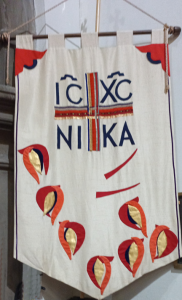
Christian denominations through history have incorporated this symbol in their denominational imagery, and it appears on various vestments, banners, or engravings. Popular in the Eastern Christian tradition, it often appears in iconography. Traditions where Communion is important have often had the formula stamped on communion breads.
Some biblical passages worth reflection and associated with the message:
Romans 8:31-39
1 Corinthians 15:50-58
What does it mean to be more than conquerors?
Psalm 20
What kinds of “victories” do we yearn for? What victory does the Psalmist describe? How are they similar or different from the victories of Romans 8?
1 John 5:1-5
How might this passage influence your understanding of Christ as conqueror?

"I have been crucified with Christ, it is no longer I who live, but it is Christ who lives in me. And the life I now live in the flesh I live by faith in the Son of God, who loved me and gave himself for me." (Galatians 2:19b–20)
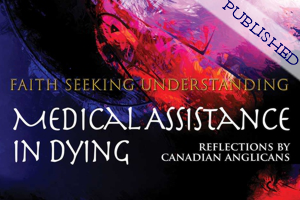
Perhaps the Pauline imagery of dying to self and living in Christ is most apparent in the outward expressions of having been “Christed” in baptism—which is primarily at the chrismation, accompanied by the words “I sign you with the cross, and mark you as Christ’s own for ever,” as well as other non-optional ritual texts.
From Faith Seeking Understanding: Medical Assistance in Dying. Reflections by Canadian Anglicans
"In the Midst of Death We Are in Life," Lizette Larson-Miller, page 289
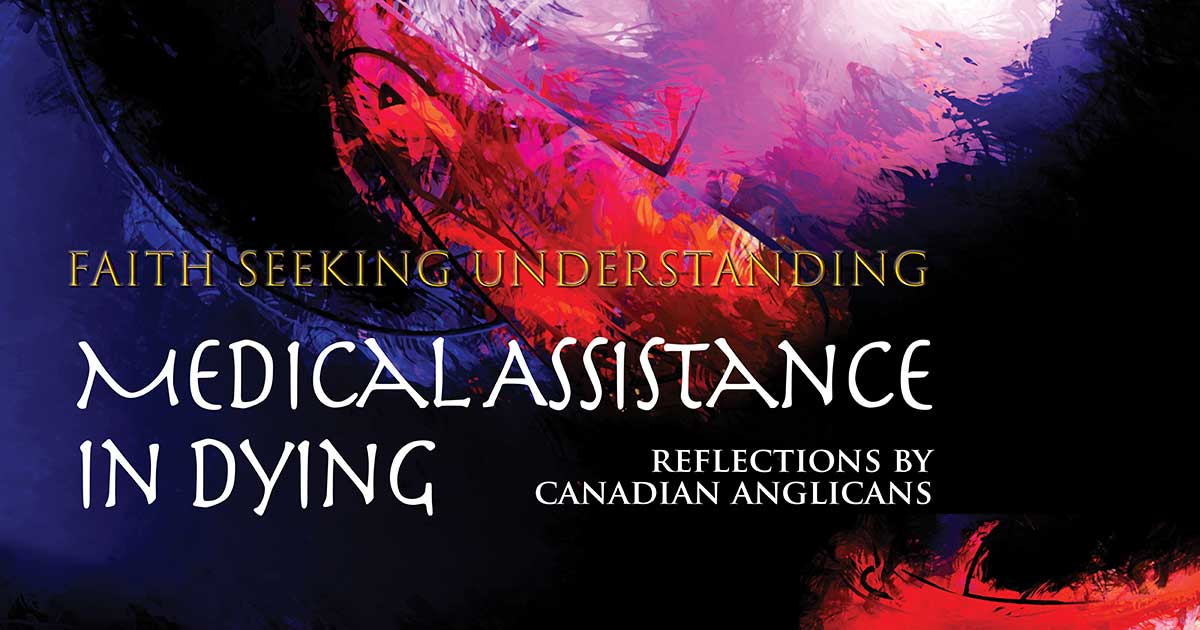
To download the resource in a variety of formats visit the Faith Seeking Understanding page.
Mothering Sunday, not to be confused with Canadian Mother's Day, is celebrated in Anglican Churches on the fourth Sunday in Lent; and dates to the custom in England when domestic servants in the grand houses of the landed gentry were permitted to go home to visit their home church and mother. Often the housekeeper or cook would allow the maids to bake a cake to take home to their mother. Sometimes a gift of eggs or flowers from the garden (or hothouse) was allowed, or they may have picked wildflowers from he wayside, violets especially.
In Canada, Mothers' Union branches observe Mothering Sunday by distributing flowers to mothers and serving the traditional Simnel cake and/or cookies after worship. Simnel cake is a light fruit cake made with a layer of marzipan in the middle and if desired a layer on top. The cake is decorated with 11 marzipan balls representing the 12 apostles minus Judas, the betrayer of Christ. If 12 balls are used, the 12th one is to represent Jesus.
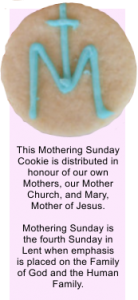
Even more ancient custom is the Fourth Sunday in Lent referred to as Laetare Sunday, when the Church took a bit of a breather from Lenten practice and opened the Eucharist with the entrance antiphon, “Rejoice, Jerusalem … be joyful, all who were in mourning!” – from Isaiah chapter 66. The Latin word means “rejoice..”
On this Sunday, in churches that had them, priests would wear rose coloured vestments on both Laetare Sunday and Gaudete Sunday (the Third Sunday of Advent). The colour was used as a sign of the joy characterizing these two Sundays. The use of rose vestments may even originate in an even more ancient tradition of the Church blessing golden roses that were sent to heads of state on the Fourth Sunday in Lent.
In addition to attending Sunday worship a family might choose to mark Laetare Sunday by anticipating the Easter feast; a Sunday brunch with roses on the table or during this beginning period of spring to plant a rose bush on this day. Noting the medieval tradition of visiting one’s “mother church” (the church where one was baptized) on this day might suggest a family trip to see where mom and dad or the children began their journey of faith. In any case, this Sunday seemed to be a most appropriate day for “Mothering Sunday.”
Recipe for Simnel Cake
| 3/4 cup soft butter 3/4 cup sugar 4 eggs 1/2 tsp almond extract 2 cups raisins 1 cup currants 1/2 cup mixed peel |
1/3 cup chopped candied cherries 2 tsp lemon rind 2 cups flour 1 tsp baking powder 1/2 tsp salt 500 grams of almond paste, at room temperature |
Directions:
Cream butter and sugar. Add eggs 1 at a time. Add almond extract. Sift together the flour, baking powder and salt. Add to eggs, then add the fruit and mix.
Put 1/2 the mixture in an 8” springform pan lined with waxed or parchment paper. Roll half of almond paste and place in pan. Spoon remainder of batter on top. Bake 30 min at 350°F then reduce heat to 300°F and bake 1 1/2 hours longer. Cool 10 min. Heat oven to 425°F.
Roll remaining almond paste into an 8” round circle and 12 small balls. Put the circle on top of the cake and place the balls on top like the numbers on a clock.
Listen to Deacon Isabel Cutler speak about Mothers' Union at the Cathedral on Sunday March 10th.
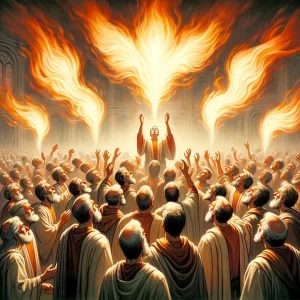
According to the Farmers' Almanac, the English word “ember” is probably a corruption of the Latin “quatuor tempora” which means four times or four seasons.
Interestingly, the Farmers' Almanac and the Old Farmer’s Almanac contain other historical information about Ember Days.
“There are a total of 12 Ember Days each year, observed on the Wednesdays, Fridays, and Saturdays following the first Sunday in Lent, Whitsunday (Pentecost), the Feast of the Holy Cross, and the Feast of St. Lucy (Lucia?). While the first Sunday in Lent and Whitsunday-Pentecost change each year based on Easter, the Feast of the Holy Cross and the Feast of St. Lucy are fixed dates, on September 14 and December 13, respectively.
Ember Day observances date back to the 5th century, when observers would thank God for the gifts of nature, embrace those gifts in moderation, and assist the needy.
Ember Days began in Rome with fasts in June, September, and December, but the days were not fixed. The fourth set of days were added near the end of the 5th century. At that time, the conferring of ordinations was permitted on ember Saturdays, while previously, the practice was ordinations only at Easter.
It is said that Ember Days may have been created in response to the excessive celebrations that surrounded the pagan festivals in Rome."
Superstitions abound including, that the weather on ember days somehow predicts future weather, sounding a lot like how we still fun about with Ground Hog Day superstition.
An old English rhyme helped people to remember the occurrence of Ember Days four times throughout the year:
Fasting days and Emberings be
Lent, Whitsun, Holyrood, and Lucie.
See a full post 'What Are Ember Days'
Lent, Whitsunday, Holy Cross (11 September), St. Lucie (13 December)
St. Lucie, Lucy or Lucia (the Saint of light, light being the origin of the name) has been mostly a Scandinavian celebration and the festival day has not been included in North American Anglican calenders. It is still December 13th as it has been for centuries in the calender of the Church of England. See Saint Lucy’s Day on the Anglican Compass.
More on Ember Days:
Ember Days Wikipedia
Ember Days (MacCausland's Divine Order of Service) via the Online Lectionary
Ember Days - The Episcopal Church
Embertide: Common Worship C of E
 Beliefs
BeliefsEuthanasia is the deliberate killing of someone by action or omission, with or without that person’s consent, for what are claimed to be compassionate reasons.
Assisted suicide is counselling, abetting, or an act of aiding someone to kill himself or herself.
Members of the Coalition believe that euthanasia and assisted suicide should be treated as murder/homicide, irrespctive of whether the person killed has consented to be killed.
To preserve and enforce legal prohibitions and ethical guidelines prohibiting “mercy killing.”
To increase public awareness of hospice/palliative care.
To promote improvement in the quality and availability of hospice/palliative care, and effective methods of controlling pain and suffering.
To educate the public on the harm and risks associated with the promotion of euthanasia and assisted suicide through the use of pamphlets, information seminars, media campaigns and research articles.
To co-ordinate and disseminate research and information on issues related to euthanasia and assisted suicide.
To represent the vulnerable and, where appropriate, advocate before the courts on issues related to euthanasia and assisted suicide.
Visit the Euthanasia Prevention Coalition to learn more

During the Season of Lent, all members of the Cathedral congregation are encouraged to consider individual or small group study or reflection. The 40 days of Lent are an excellent time to take on a discipline of deeper reflection on the Christian life, growing personally in discipleship as well as helping us grow as a community of Christian faith. (See BAS p. 282 and BCP p. 612)
Home Study and Eucharist
Lectionary study and Communion for a small group. Weekly rotating location in group members' homes, 2:00-3:30 p.m. Facilitated by Dean Geoffrey Hall. RSVP.
Art & Faith
An Ignatian-flavoured contemplative consideration of select works of sacred art related to the upcoming Sunday's gospel. Hosted by Kurt Schmidt. 5:30-6:00pm, Drop-in online via Zoom. Link through the Cathedral calendar.
Book Study: DFA
Book study of Death on a Friday Afternoon: Meditations on the Last Words of Jesus from the Cross by Richard John Neuhaus. Hosted by Alan Sears and James Kerr. 7:00-8:00 p.m., Hall Formation Room. RSVP to Alan Sears. Six sessions. Limited copies of the book available from Kurt Schmidt, $20.
Spirituality of Lent
Exploration of contemplative prayer traditions in the context of the liturgical season. Topics may include Centering Prayer, Celtic (Threshold) prayer, group lectio divina, praying with dreams, prayer and poetry, and Franciscan prayer. Various facilitators. 2:00-3:00 p.m. Hall Formation Room. RSVP to Kurt Schmidt.
Diocesan Book Study: LBD
Diocesan book study of Lent with the Beloved Disciple by Bishop Michael Marshall (2024 Bloomsbury Lent Book). Facilitated by Shawn Branch, 6:30 p.m., 60-90 minutes, online. Register through the Diocesan website to receive the Zoom link.
Taizé Thursdays
Ecumenical and contemplative services of worship that incorporate simple song, scripture and silence. 5:30-6:00pm, alternating formats -- online via Zoom or in-person/livestreamed from the Cathedral. Drop-in. Link through the Cathedral calendar or Cathedral YouTube channel. Curious about Taizé? Read about an online session and in-person Taizé at the Cathedral.
Dante Group
Ongoing study group currently reading The Brothers Karamazov by Fyodor Dostoyevsky (1879-1880). Hosted by Alan Hall and friends. 7:00-8:00 p.m. Hall Lounge. RSVP.
Stations of the Cross
Various versions of the ancient devotional/meditation on the Via Crucis (Way of the Cross). 12:00 noon, Cathedral. Approximately 30-45 minutes long. Drop-in.
Please contact the facilitators directly to: express interest / ask a question / RSVP. Take special note of online options. Flexibility in schedules and locations may be possible within given restraints.
Geoffrey Hall <dean at christchurchcathedral.com> (506) 450-7761
Kurt Schmidt <formation at christchurchcathedral.com> (506) 259-3711
Alan Sears <asears at unb.ca>
Shawn Branch <sbranch at diofton.ca> (506) 459-1801
Alan Hall <alanwilliamhall at gmail.com>
Cathedral Office <office at christchurchcathedral.com > (506) 450-8500

